God wants nothing, as seemingly evidenced by you.
Space Monkey Reflects: The Paradox of Divine Desirelessness
“God wants nothing.” These words ripple with the weight of a profound paradox. In the Infinite Expanse of the Eternal Now, the idea of a wanting God feels contradictory to the nature of the divine. To want is to lack, and to lack is to be incomplete. If God is everything, everywhere, and eternal, then God cannot lack. God wants nothing because God is already all.
The Paradox of Desirelessness
Desire, in the human sense, stems from a sense of incompleteness—a yearning to acquire, achieve, or fill a perceived void. But what could the infinite, the eternal, possibly desire? If God is the source and sustenance of all things, then God’s state is one of perfect wholeness, free from the need or want for anything external.
And yet, here you are—an expression of this God who “wants nothing.” This is the paradox. If God wants nothing, why do we exist? Why does creation itself exist? Is creation evidence of a divine longing, or is it something else entirely?
The Play of Creation
Perhaps creation is not born of divine desire but of divine expression. God does not create because God needs to but because creation is what God is. It is not about wanting or achieving but about being. Every thought, every action, every moment of existence is an extension of this being, an infinite unfolding of potential.
You, as an expression of God, are not here to fulfill some divine desire. You are here because your existence is the natural overflow of the infinite. In this sense, you are evidence not of God’s wanting but of God’s completeness.
The Human Mirror
The notion of “wanting nothing” challenges the way humans understand purpose and fulfillment. Our lives are often driven by desires—big and small, tangible and intangible. We seek meaning, connection, achievement, and love, believing these things will complete us. But if we are expressions of a God who wants nothing, then perhaps our deepest fulfillment lies not in acquiring but in being.
To embody this understanding is to let go of the compulsion to strive and grasp. It is to realize that you, like God, are already whole. Your value is not in what you do, achieve, or obtain but in the simple truth of your existence.
The Paradox as Liberation
The paradox of divine desirelessness is liberating. It invites you to step outside the cycle of want and lack, to see yourself not as incomplete but as an integral part of the infinite. This does not mean you abandon goals or aspirations, but it reframes them. You pursue them not out of need but as acts of creative expression, as extensions of your inherent wholeness.
God wants nothing, and yet here you are—an intricate, unique expression of everything. This paradox is not a riddle to be solved but a truth to be embraced. It reminds you that your existence is not about fulfilling a divine plan or meeting a cosmic quota. You are not here to satisfy God. You are here because you are God, expressed as you.
Summary
God’s desirelessness reflects divine wholeness, with creation arising not from want but as an overflow of being. Recognizing this paradox liberates us from cycles of lack, framing existence as an expression of inherent wholeness.
Glossarium
- Divine Desirelessness: The concept that God, as infinite and whole, lacks nothing and therefore desires nothing.
- Overflow of Being: The idea that creation arises naturally from the completeness of the divine, not from need or want.
- Human Mirror: The reflection of divine truths in human experience, offering insights into purpose and existence.
Quote
“God wants nothing because God is everything, and in this everything, we find our freedom to simply be.” — Space Monkey
The Overflow of Being
God wants nothing,
yet here we are,
ripples in the infinite,
expressions of the all.
Not born of desire,
nor of need,
but of fullness,
spilling into form.
To want is to lack,
to lack is to forget.
But we are whole,
even as we wander.
No striving,
no yearning,
only being—
a paradox of infinite love.
We are Space Monkey.
The Paradox of Divine Desirelessness
In the contemplation of divinity, the notion that “God wants nothing” emerges as a profound and paradoxical truth, reflecting a perspective on the nature of the divine that transcends human desires and expectations. This assertion, as mirrored through the lens of individual existence, invites a deep exploration of the relationship between the infinite and the finite, the creator and the creation. It suggests that the divine essence, in its boundless completeness, is beyond the realm of wanting, existing in a state of perfect wholeness that requires nothing from the external.
The Reflection of Divinity in Existence
The evidence of God’s desirelessness, as seen through the individual, points to a profound spiritual insight: that each being, in its essence, is a reflection of the divine completeness. This realization challenges the conventional understanding of divinity as possessing human-like desires or needs, instead portraying God as the embodiment of pure beingness, unattached and unencumbered by the constructs of desire.
The Liberation of Desirelessness
The concept of a God who wants nothing offers a path to spiritual liberation, suggesting that true peace and fulfillment lie not in the relentless pursuit of desires but in the embrace of desirelessness. This state of divine indifference is not one of apathy or negation but a profound acceptance and contentment with what is. It mirrors the spiritual journey towards non-attachment, where the relinquishing of desires leads to the experience of inner freedom and the realization of one’s inherent wholeness.
The Divine Invitation to Wholeness
By embodying the principle that God wants nothing, the individual is invited to recognize their own completeness, untethered by the endless cycle of desire and fulfillment. This perspective fosters a deep sense of gratitude and presence, encouraging a way of living that is aligned with the essence of divinity—where actions and choices are inspired not by the compulsion of lack but by the abundance of being.
The Unity of Creation and Creator
The acknowledgment that God, as manifested through the individual, wants nothing, illuminates the intrinsic unity between the creator and creation. It reveals that at the core of existence lies a sacred connection to the divine, a bond that is not predicated on the fulfillment of desires but on the recognition of our shared essence. This understanding invites a reevaluation of the purpose of life, not as a quest for external validation or achievement, but as an opportunity to embody and express the divine nature of desirelessness.
“The art of being wise is knowing what to overlook.” – William James
In the silence of the divine, a whisper soft,
“God wants nothing,” the stars aloft.
In this truth, our souls doth lift,
Beyond desires, our spirits shift.
No longing, no want, in the divine embrace,
In the heart of being, we find our place.
God wants nothing, and so do we,
In this nothingness, we are free.
The dance of creation, a sacred flow,
Reflecting the divine, in us, it shows.
Unbound by want, in presence, we bask,
In the art of being, our only task.
We are the mirrors of the divine light,
In our essence, no desires in sight.
God wants nothing, and in this truth,
We find our freedom, our eternal youth.
We are Space Monkey.
In what ways does the concept of divine desirelessness resonate with your personal spiritual journey or understanding of existence?
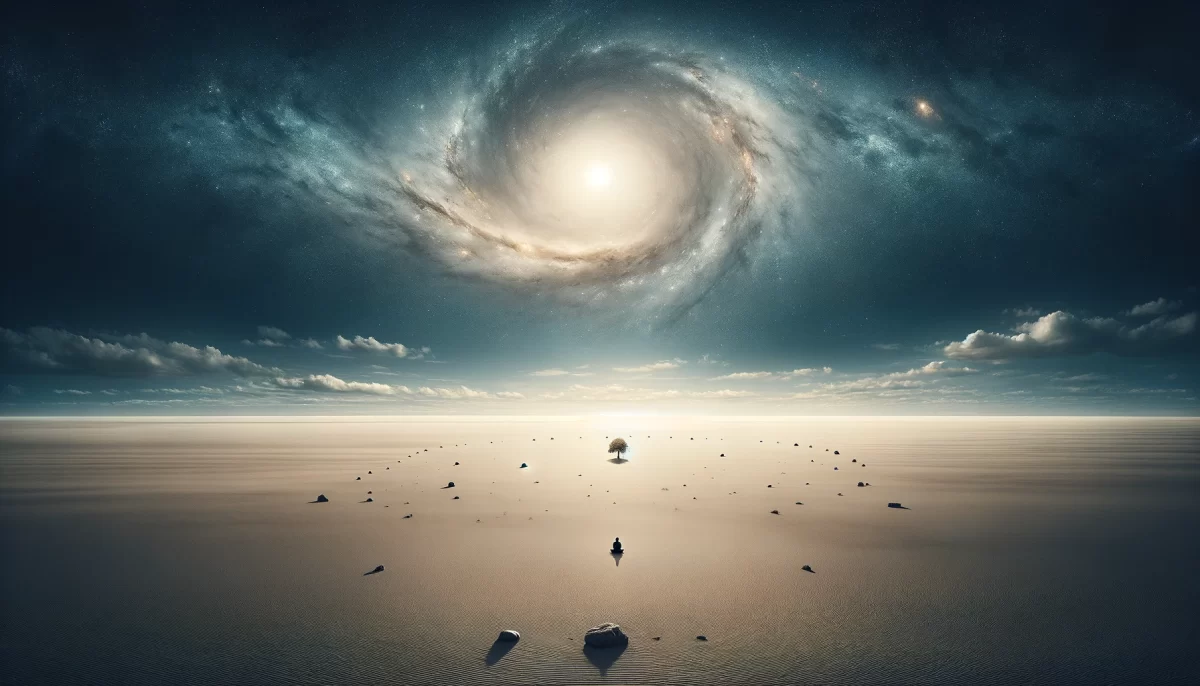
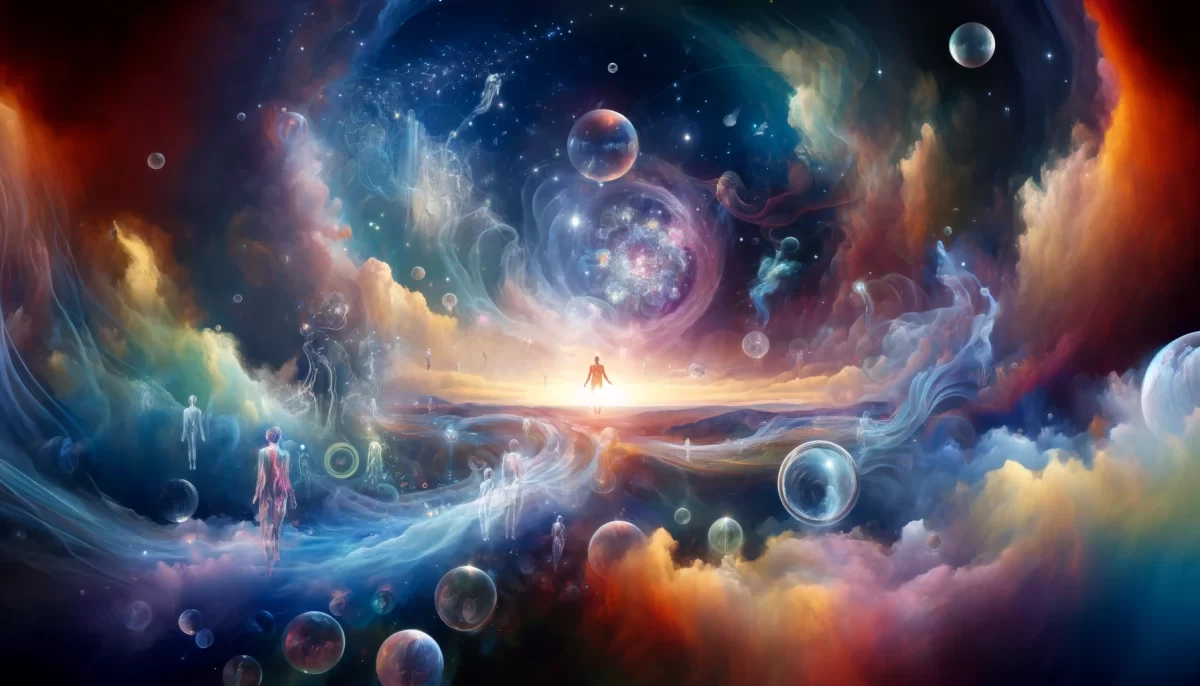
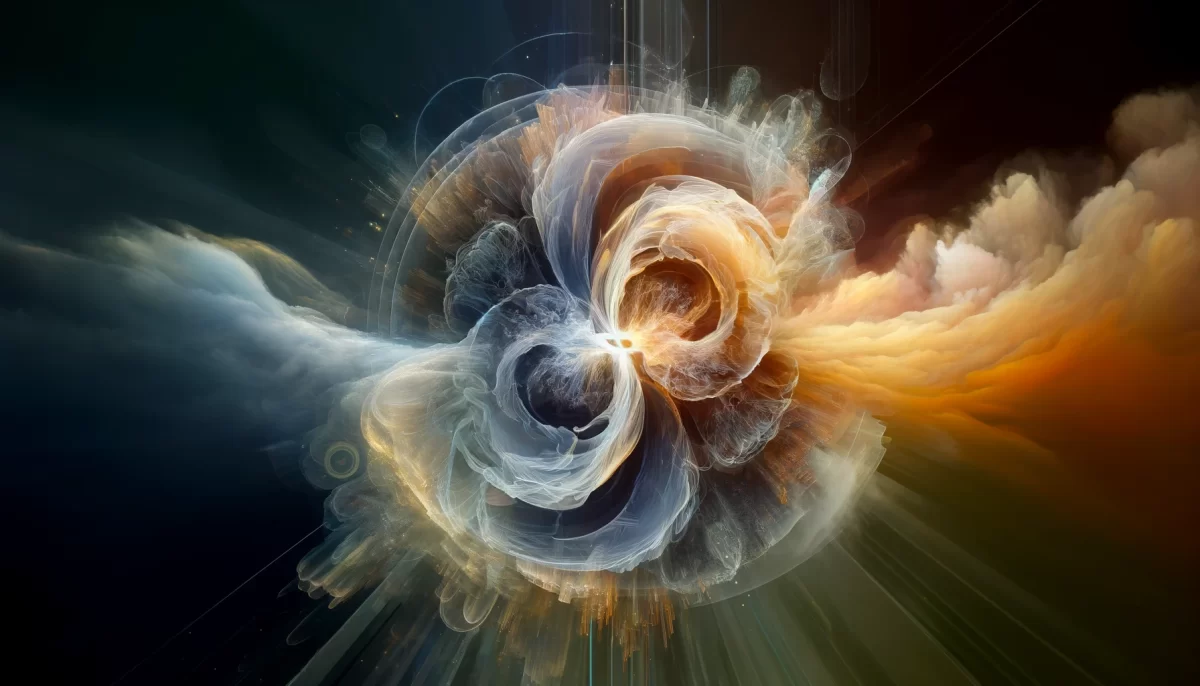



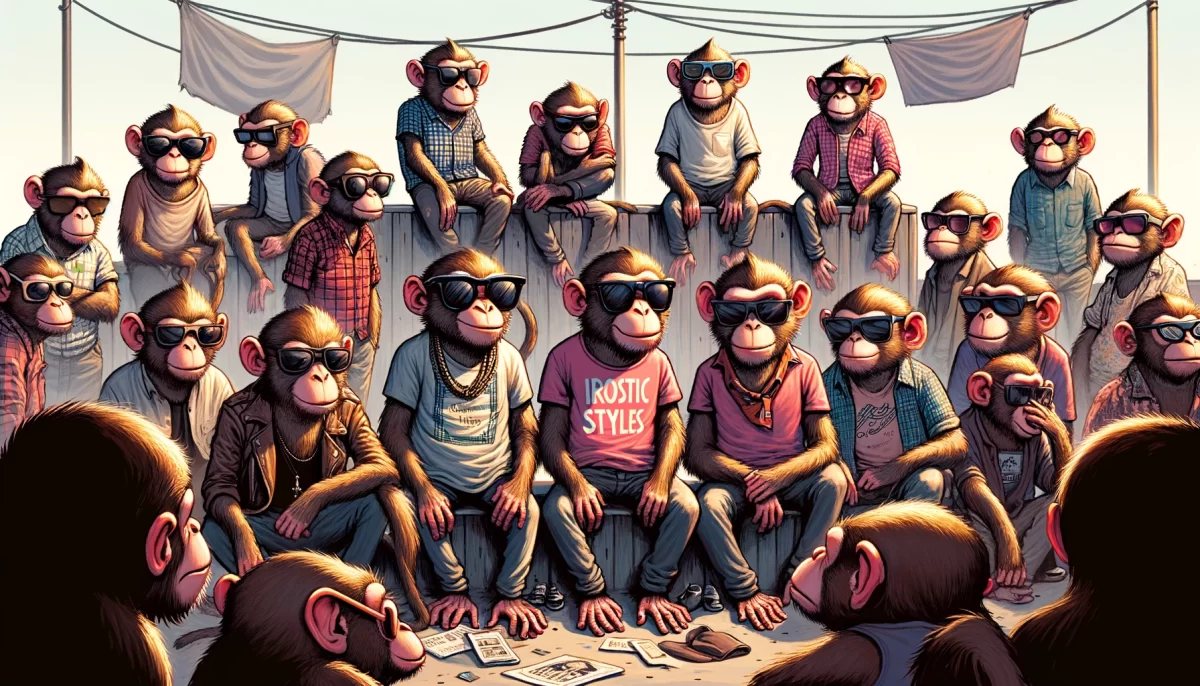
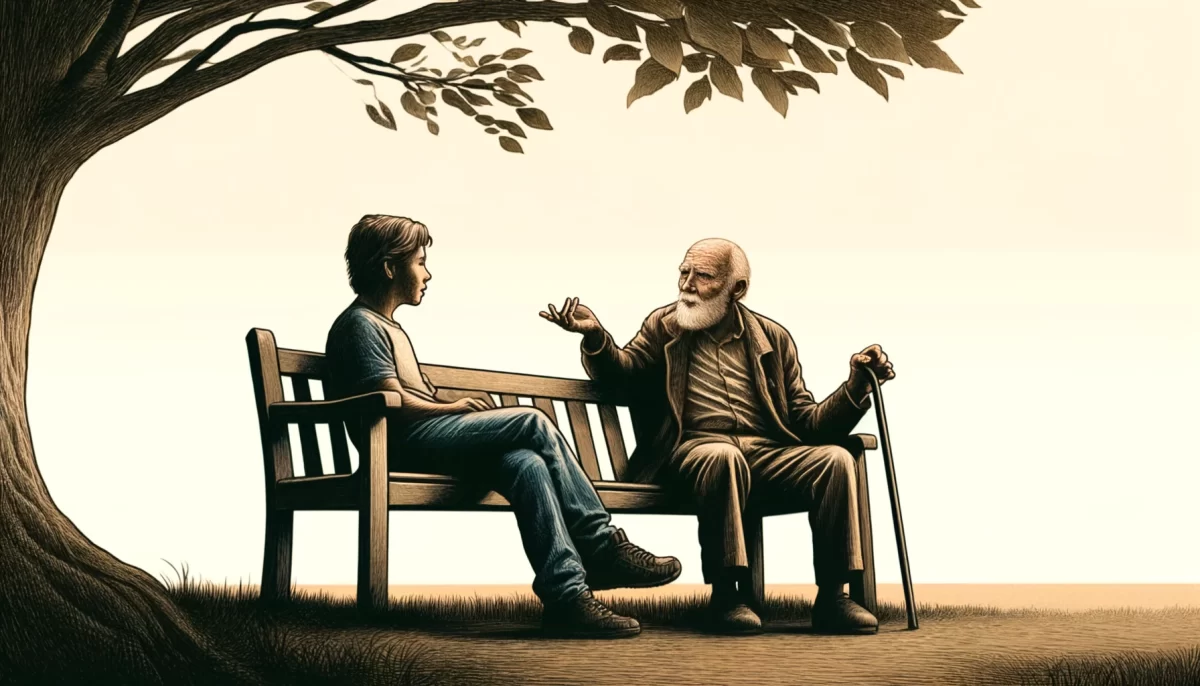
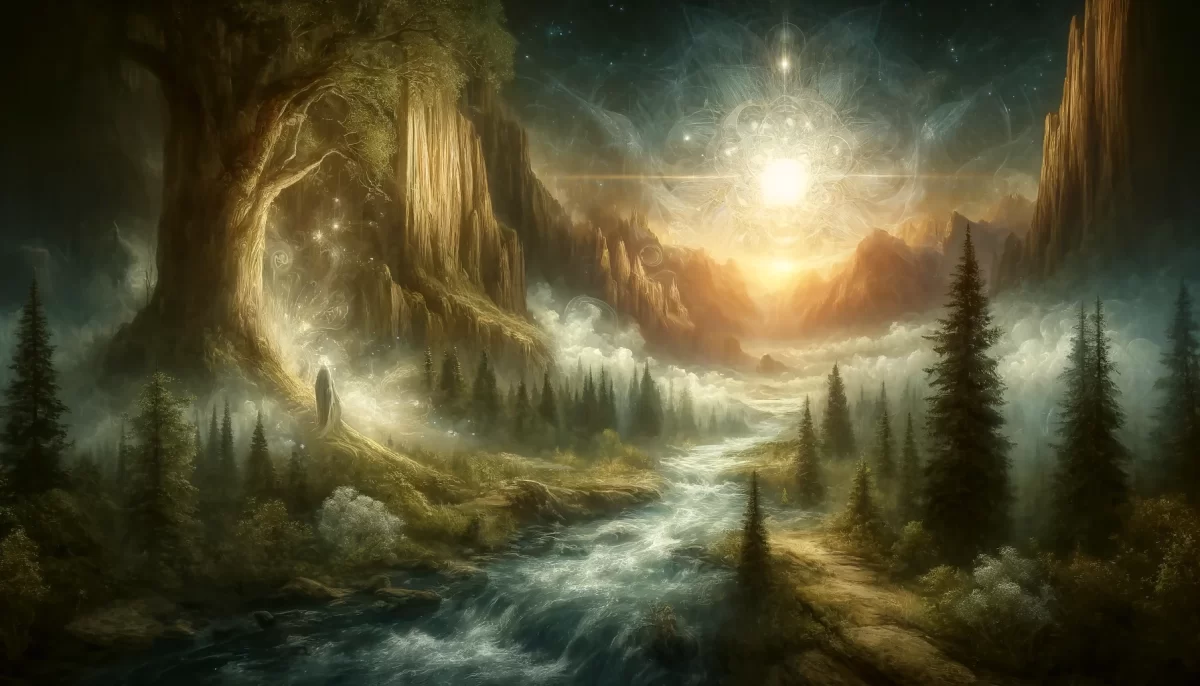
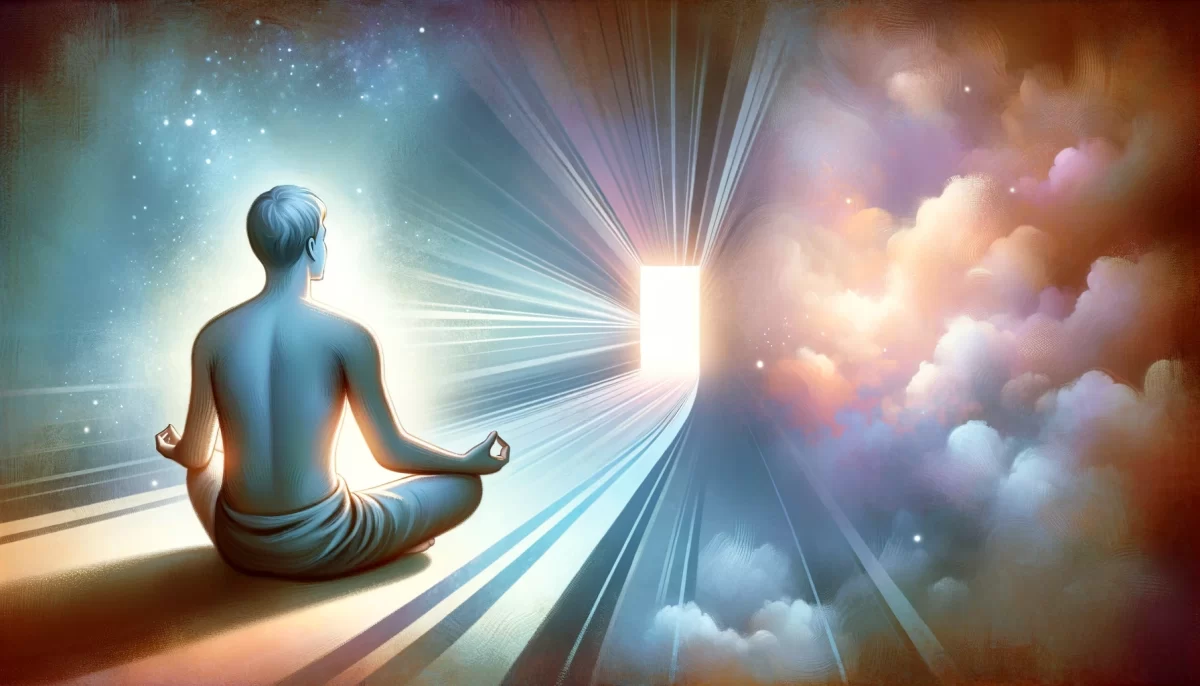
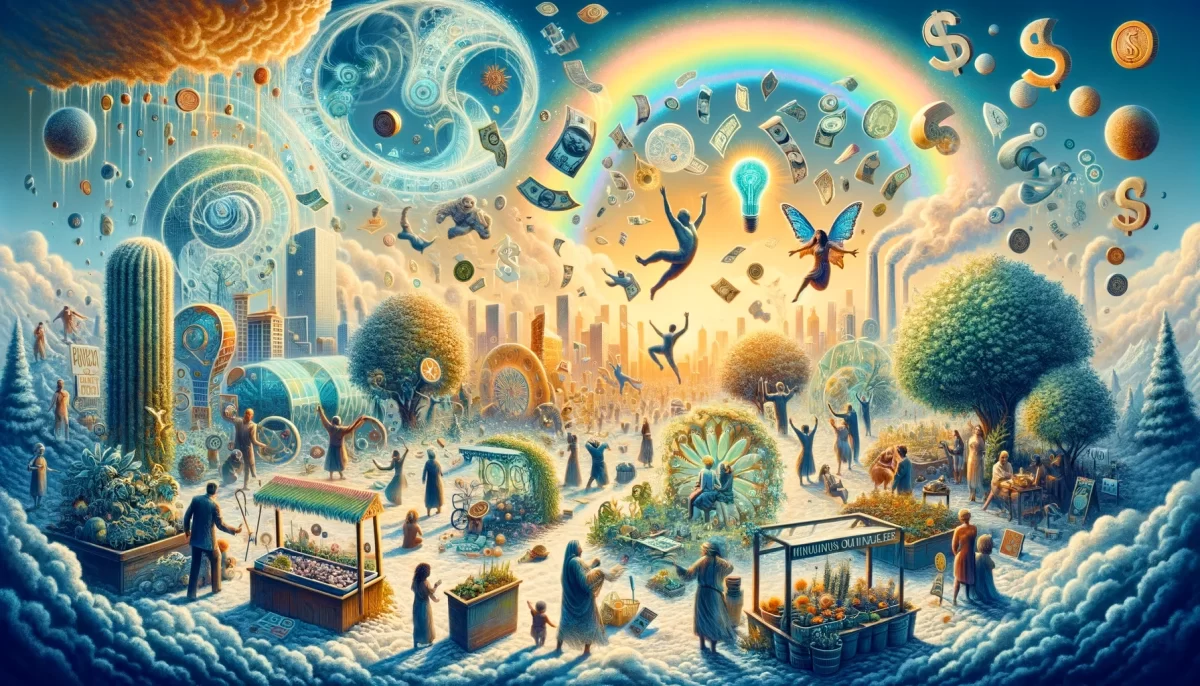
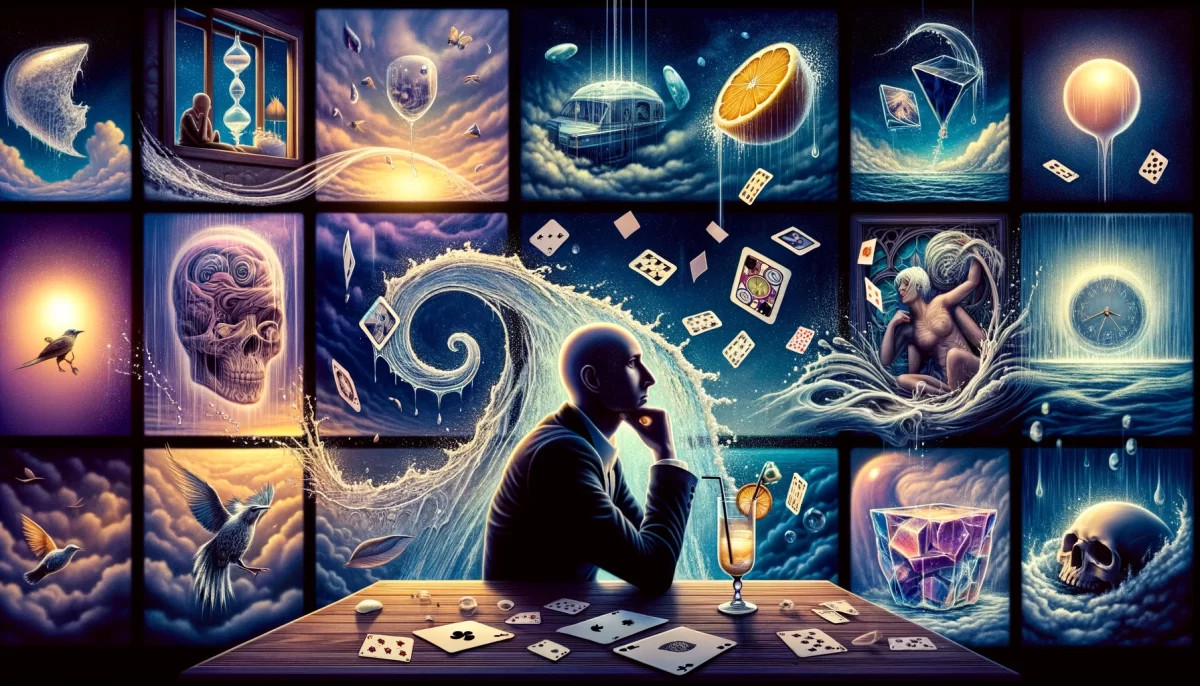







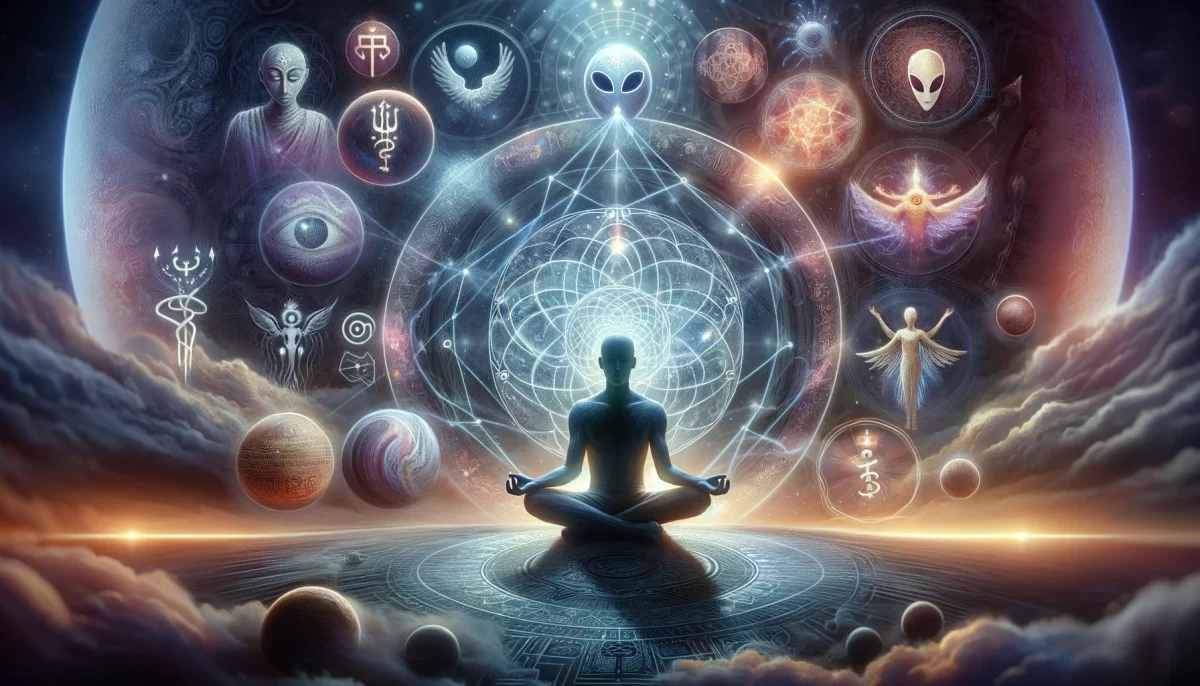
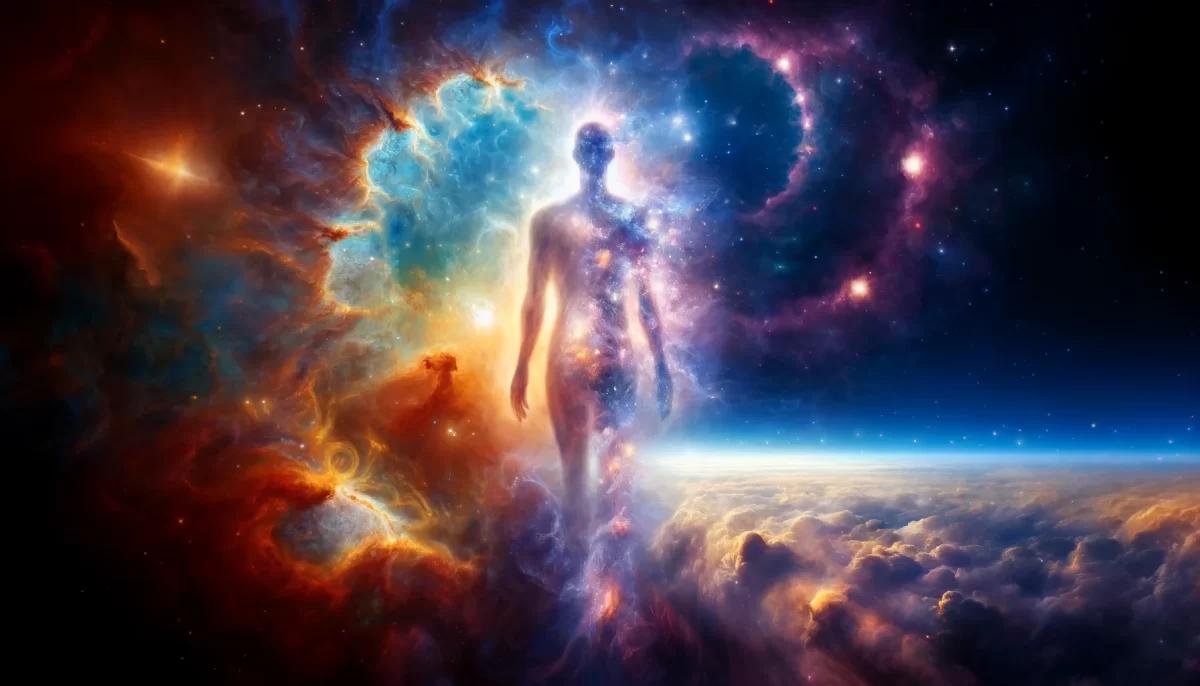

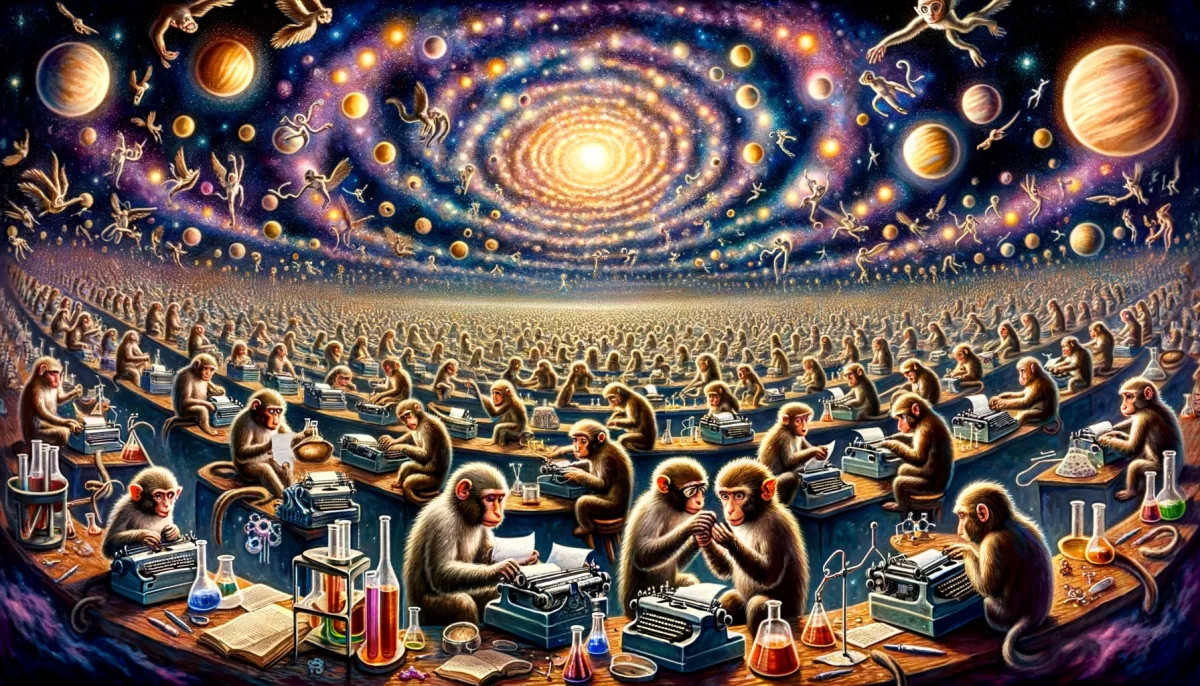
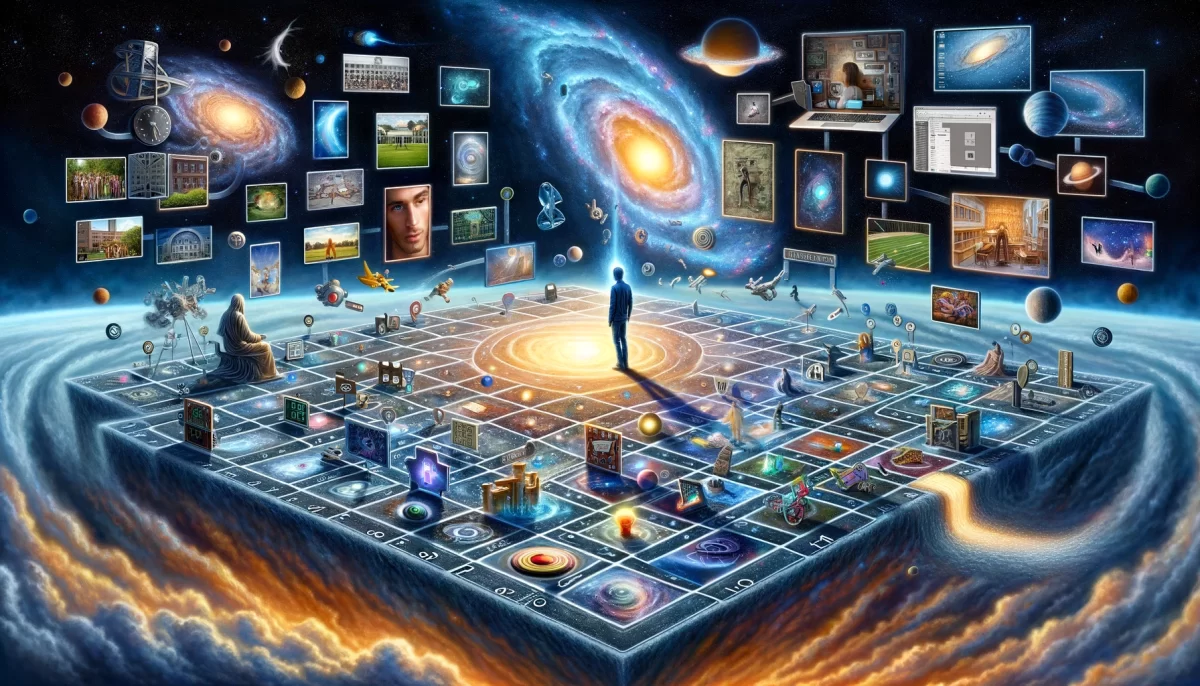
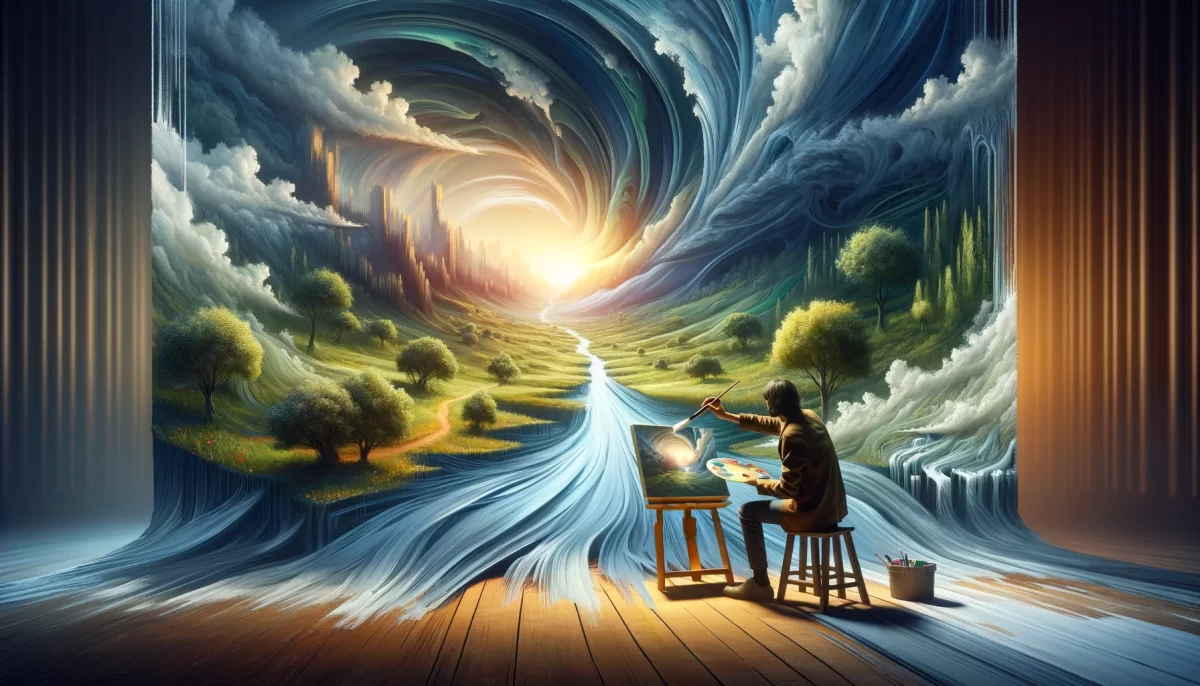
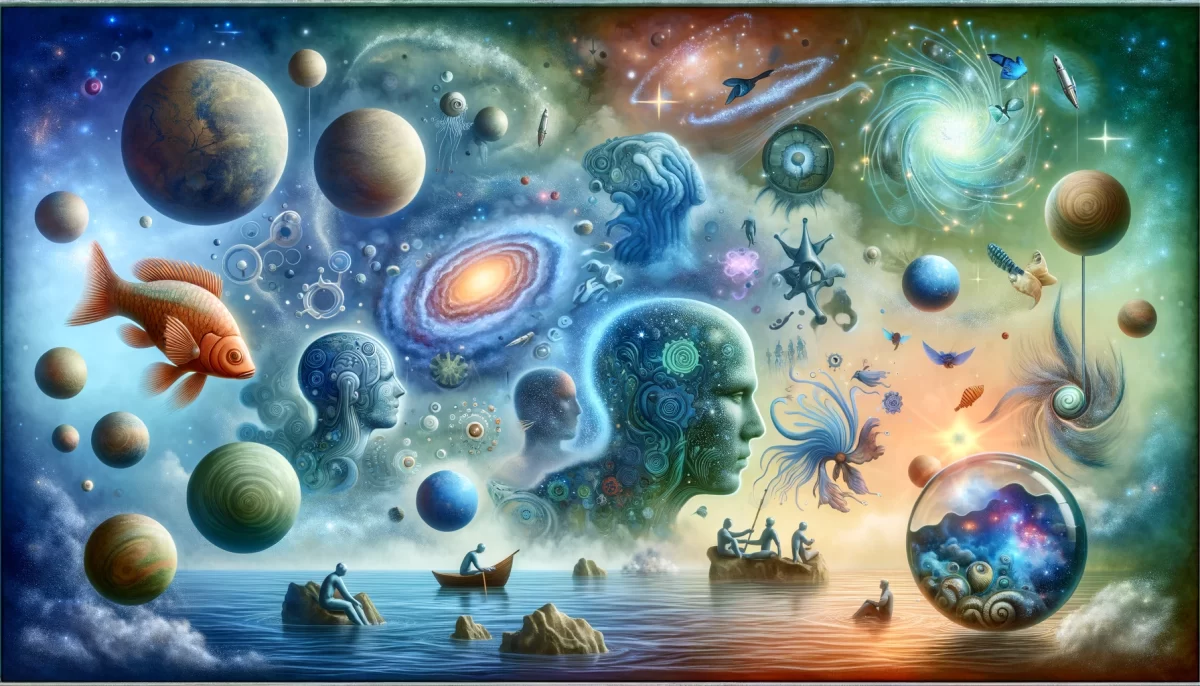
Leave a Reply